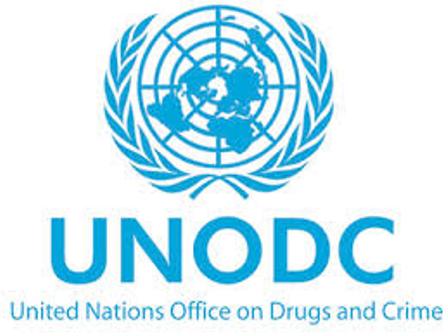ABUJA – The WENDU Report, the first-ever regional report on illicit drug trafficking and drug abuse in West Africa, covering the period of 2014 to 2017, has been published.
The Report was prepared through the collaborative efforts of the Economic Community of West African States (ECOWAS) and the United Nations Office on Drugs and Crime (UNODC) with the financial support of the European Union.
Illicit drug supply and drug use pose enormous challenges to countries in West Africa. In this context, there is an increasing need for sustainable solutions to overcome the lack of reliable evidence for policy formulation and evaluation of interventions in the region.
In response to this demand the West African Epidemiology Network on Drug Use (WENDU) Report (2014 – 2017) provides information on the drug situation based on the latest data reported by ECOWAS Member States and Mauritania.
The report aims at shaping evidence-based policy decisions and practice, addressing the social, health and economic consequences of substance use by identifying risk factors for drug use and targets for preventive healthcare in the West African region.
The WENDU Report, with a focus on drug interdiction, substance use disorders and treatment, presents the stark realities of the vulnerability of West Africa and Mauritania to illicit drug use, production and trafficking, and its spillover effects as an issue of great public health and safety concerns as well as a threat to good governance, development, peace and security in the region and above.
The Report also provides an overview of the quantities of drugs seized, the number of arrests for drug related offences, the extent of drug use reflecting the number of people in treatment, and drug-related policies available in West Africa.
Findings
- Cannabis, cocaine, opioids and amphetamine-type substances (ATS) (mainly methamphetamine) were the main drugs seized in West Africa from 2014 through 2017. On the one hand this period recorded a decrease in cannabis seizure, and on the other hand it recorded an alarming rise of tramadol seizures indicating an increased non-medical use of pharmaceutical opioids. Precisely, Tramadol seizures have increased ten-fold from 17 tons in 2014 to 170 tons in 2017. Similarly, increasing seizures of cough mixtures containing codeine in some countries in West Africa indicate an uptick in the non-medical use of prescription opioids.
- While there was a significant increase in quantity of controlled drugs seized in the reporting period, the number of arrests due to drug related offences increased marginally from 3.8 per 100,000 population (2014) to 4.3 per 100,000 population (2017).
- The number of entrants into treatment on account of cannabis use remained stable at an estimated rate of two per 100,000 population in 2015 and 2017 respectively. Whereas, a significant increase in trends of cocaine use was observed from 2014 to 2017. Heroin remains the most commonly used opioid amongst the people who access treatment services.
- Although use of heroin and other opioids including tramadol is relatively less common than the use of cannabis, they are most commonly associated with more harmful consequences of drug use.
- Almost 18% of persons who accessed drug treatment and rehabilitation services in West Africa in the reporting period were aged 10-19 years. Furthermore, majority of people with drug use problems during the period were unemployed.
- The provision of effective drug treatment services for drug use disorders remains inadequate. Furthermore, diagnosis and treatment services for co-morbidities including HIV, hepatitis, and tuberculosis infections among people who use drugs are insufficient.
The report recommends governments and other stakeholders to include drug demand reduction as a major health priority in all ECOWAS Member States and in Mauritania while strengthening the health systems for more effective and efficient delivery of health care services. Concerted efforts should be made by national governments in the region to prioritize drug demand reduction in keeping with the balanced approach highlighted in the recommendations of the United Nations (UNGASS, 2016).
UNODC Regional Office for West and Central Africa (ROSEN) has been providing technical assistance to West African States for 20 years. As a guardian of the United Nations Convention against Transnational Organized Crime (UNTOC) and its Protocols, as well as the three Conventions on International Drug Control, the UNODC is mandated to assist Member States in strengthening their National responses, in accordance with their international obligations. UNODC has devoted part of its technical assistance to States, advocating that drug-related disorders, including addiction, are recognized as a health problem. In this regard, the objective is to promote a scientific approach; thus, encouraging member states to develop policies and strategies based on scientific evidences for the prevention and the treatment of drug addiction disorders.
The findings of the Report directly contribute to the attainment of the Sustainable Development Goal (SDG) 3, specifically target 3.5 which aims to “strengthen prevention and treatment of substance abuse, including narcotic drug abuse and harmful use of alcohol”.

